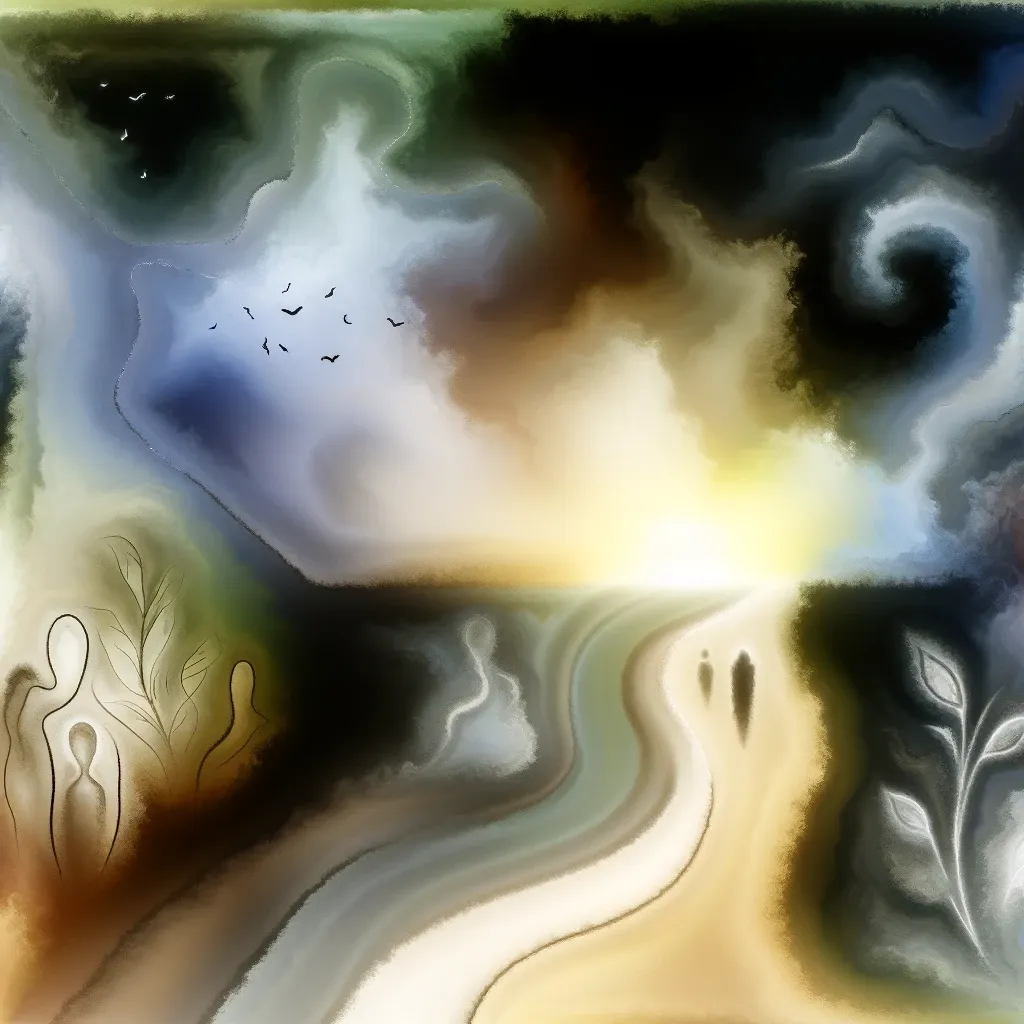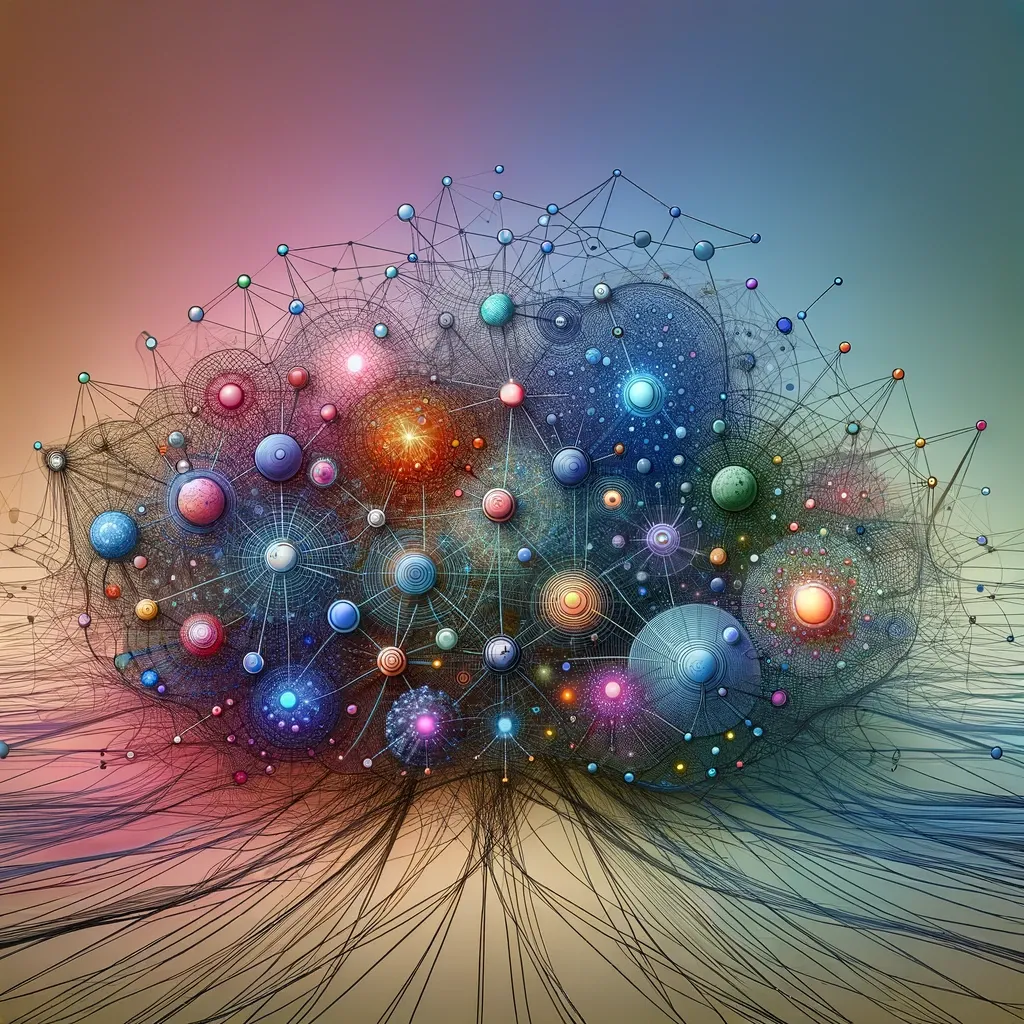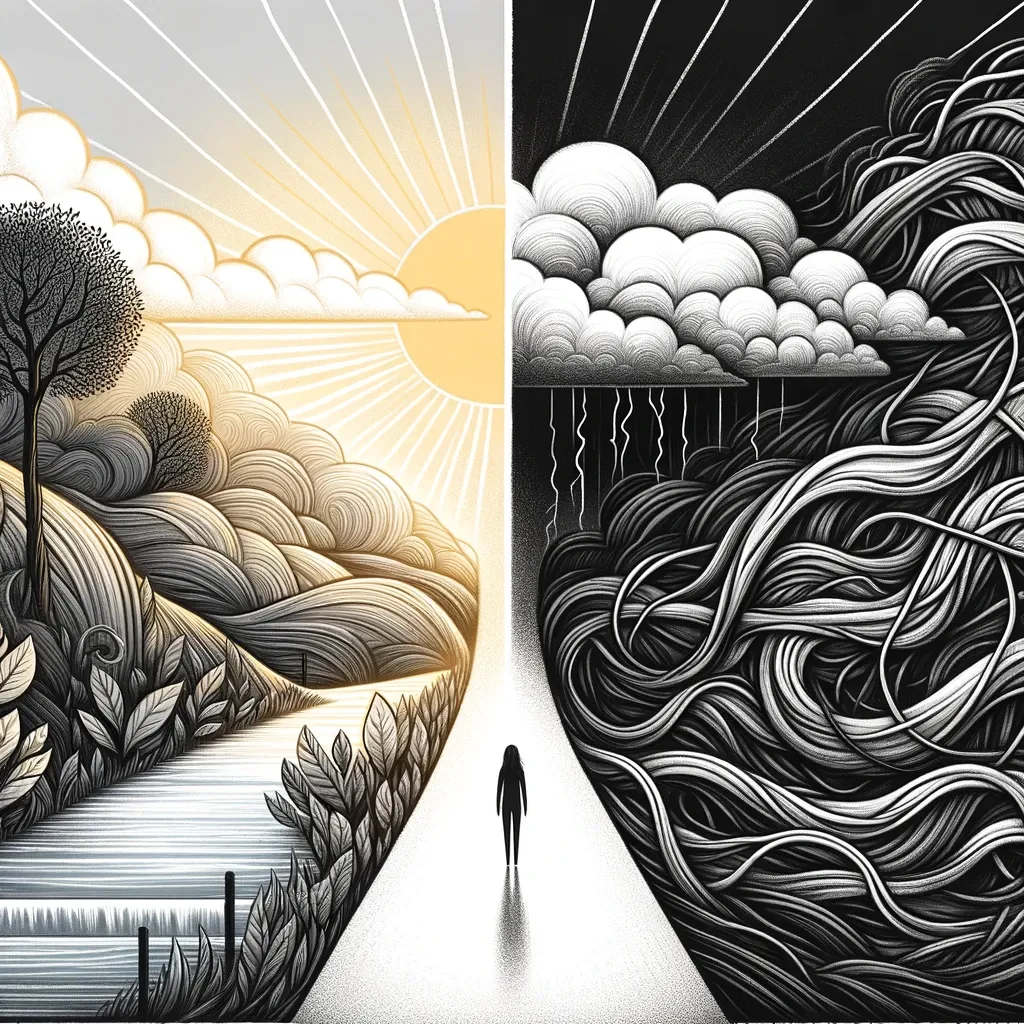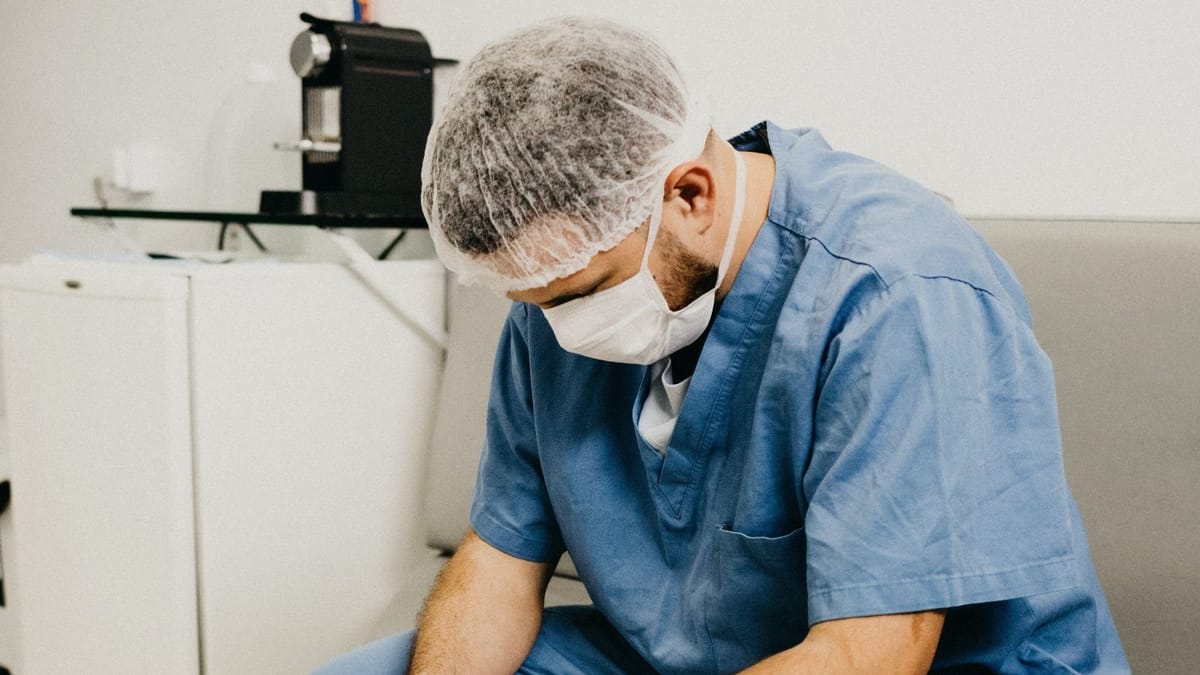Overcoming Grief and Depression
Explore the intricate relationship between grief and depression, including the journey from normal to complicated grief, clinical depression signs, and healing strategies. Learn the differences, treatment options, and support mechanisms for those navigating this challenging emotional landscape.

Understanding Healing and Hope
Introduction to Grief and Depression
In the intricate landscape of mental health, the intertwining of depression with grief presents a profound challenge for both individuals experiencing it and professionals tasked with providing care. This article delves into the complexities of grief-related depression, highlighting critical concepts such as prolonged grief disorder, clinical depression, and the grieving process. By weaving in expert insights and current diagnostic criteria, we aim to shed light on the nuances of this emotional turmoil, offering a path toward understanding and healing.
Understanding Grief and Depression: The Overlapping Realms
The Spectrum of Grief: From Normal to Complicated
Grief, a natural response to loss, varies widely among individuals. While normal grief encompasses a range of emotions following the loss of a loved one, it typically leads to healing over time. However, when grief becomes overwhelming, persisting intensely for an extended period, it may evolve into what is known as complicated grief or prolonged grief disorder. This condition, characterized by deep sadness, intense grief, and difficulty moving on from the loss, often requires professional intervention.
Clinical Depression: A Deeper Shade of Sadness
Clinical depression, or major depressive disorder, transcends the typical sadness or low mood experienced by many. It is a mental illness marked by a persistent depressed mood, loss of interest in activities, and a suite of physical and emotional symptoms that severely impact daily life. When intertwined with grief, depression can amplify the pain, leading to a profound state of emotional turmoil.
The Diagnostic Lens: Bereavement and Depression
The American Psychiatric Association's Stance
The American Psychiatric Association (APA) provides guidelines for diagnosing mental health conditions through its Diagnostic and Statistical Manual (DSM). Recent editions have evolved in understanding the relationship between grief and depression, recognizing the need for nuanced clinical judgment. The concept of the "bereavement exclusion," once a diagnostic criterion that differentiated grief from depression, has been reevaluated, acknowledging that the two can coexist and both may require treatment.
Prolonged Grief Disorder: Recognition and Response
In response to growing recognition of the unique challenges posed by prolonged grief, the latest DSM iteration includes prolonged grief disorder as a diagnosable condition. This inclusion reflects an understanding that grief can extend beyond the realm of a normal emotional response, necessitating targeted therapeutic approaches.
The Emotional Landscape of Grieving and Depression

The Complex Web of Feelings
The emotional journey of someone experiencing grief with depression is fraught with intense feelings, from deep grief and painful emotions to moments of emotional numbness or even brief interludes of positive emotions. The grieving process can trigger a range of responses, including extreme sadness, suicidal thoughts, and trouble sleeping. Moreover, external factors, such as the nature of the deceased person's death (e.g., violent death or terminal illness), can significantly affect the intensity and duration of grief.
The Role of Emotional Support and Professional Help
Navigating the stormy waters of grief and depression often requires a constellation of support. Mental health professionals can provide crucial guidance and therapeutic interventions, while support groups offer a sense of community and understanding. Emotional support from family and friends also plays a key role in the healing process, offering solace and connection during times of isolation.
Treatment and Healing: Pathways to Recovery
Addressing Prolonged Grief and Clinical Depression
Treatment for those suffering from both grief and depression may include a combination of psychotherapy, medication, and support mechanisms. Antidepressant medication can alleviate some symptoms of depression, while psychotherapy—particularly approaches like cognitive-behavioral therapy and complicated grief therapy—can help individuals process their loss and work through their grief.
The Importance of Recognizing and Treating Both Conditions
Untreated depression amidst grief can lead to worsening mental health outcomes and significantly impair one's ability to function in daily life. Recognizing the symptoms and seeking help early can prevent the descent into deeper psychological distress. It's essential to address both the grief and the depression, acknowledging their interplay and the unique impact each has on the individual.
A Journey Toward Healing
The confluence of depression with grief represents a particularly challenging aspect of mental health, blending the profound impact of loss with the debilitating effects of a major depressive disorder. Through increased awareness, comprehensive diagnostic criteria, and a compassionate approach to treatment, individuals navigating this painful journey can find pathways to healing and hope. As society continues to advance in its understanding and support of mental health, the distinction between grief and depression becomes clearer, allowing for more effective and targeted interventions. This nuanced understanding underscores the importance of addressing the multifaceted nature of emotional pain, ensuring that those suffering from the loss of a loved one and depression receive the comprehensive care they need to move forward.
Navigating Depression and Grief

What is the difference between normal grief and complicated grief?
Normal grief is a natural response to loss, characterized by sadness and longing, but it gradually leads to acceptance and healing. Complicated grief, on the other hand, is more intense and prolonged, significantly impairing daily functioning and requiring professional intervention.
How does grief become a mental health concern?
Grief becomes a mental health concern when it evolves into complicated or prolonged grief disorder, where the intensity and duration of grief exceed typical expectations and hinder an individual's ability to return to their daily routines, leading to significant emotional distress.
Can grief cause clinical depression?
Yes, grief can trigger clinical depression, especially if the individual has a history of depression or is particularly vulnerable due to various factors. Clinical depression involves persistent feelings of sadness, loss of interest in previously enjoyed activities, and other symptoms that affect one's daily life.
What are the signs of a major depressive episode during grief?
Signs of a major depressive episode during grief may include a depressed mood most of the day, nearly every day, significant weight loss or gain, insomnia or excessive sleeping, fatigue or loss of energy, feelings of worthlessness or excessive guilt, and recurrent thoughts of death or suicide.
How can grief affect physical health?
Grief can lead to various physical health issues, including trouble sleeping, changes in appetite leading to weight loss or gain, increased susceptibility to illnesses due to a weakened immune system, and substance abuse as a coping mechanism.
What is the bereavement exclusion, and how has it changed?
The bereavement exclusion was a criterion in earlier versions of the DSM that excluded the diagnosis of major depression in individuals recently bereaved. However, this exclusion has been removed in recent editions, recognizing that grief can coexist with clinical depression and both may require treatment.
How can one differentiate between grief and depression?
While there are overlapping symptoms, grief is typically tied to thoughts of the deceased, with emotional pain coming in waves, often interspersed with positive memories. Depression involves a pervasive low mood, lack of pleasure in almost all activities, and is not necessarily linked to specific thoughts or memories.
What role does the American Psychiatric Association play in defining grief and depression?
The American Psychiatric Association (APA) defines and classifies mental disorders, including grief-related conditions and depression, in the Diagnostic and Statistical Manual of Mental Disorders (DSM). This helps professionals diagnose and treat these conditions accurately.
Can antidepressant medication help with grief?
Antidepressant medication can be helpful in cases where grief is accompanied by clinical depression. However, medication should be considered as part of a comprehensive treatment plan, including therapy and support, tailored to the individual's needs.
What support is available for those dealing with grief and depression?
Support for those dealing with grief and depression includes counseling or therapy with mental health professionals specializing in grief, support groups for bereaved individuals, and sometimes medication to manage symptoms of depression. Emotional support from family and friends is also crucial.
How can one support a bereaved person experiencing depression?
Supporting a bereaved person experiencing depression involves offering a listening ear, providing practical help with daily tasks, encouraging them to seek professional help if needed, and simply being there to offer comfort and understanding without judgment.
What is the healing process like for someone dealing with both grief and depression?
The healing process for someone dealing with both grief and depression is highly individual and can vary greatly in duration and intensity. It typically involves working through the stages of grief, managing symptoms of depression, and gradually finding a new normal, with professional support playing a key role.
You might also like this article:







